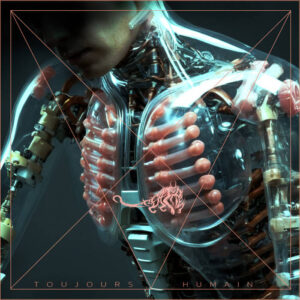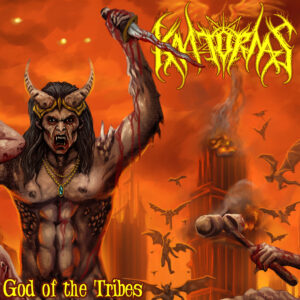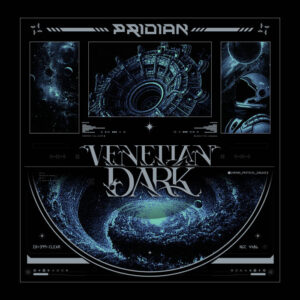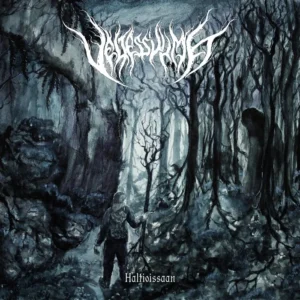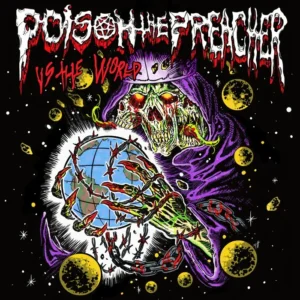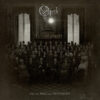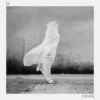Metal And Sexism / Dorothy Cheng
•
September 14, 2013
Metal music and Women. The topic itself seems to be up to stir some shit. In their own provocative ways, Metal music and women fall snugly into the palms of society as entities that are both darkly mysterious yet wildly exciting, almost forbidden in some contexts. But this article is not about stirring shit or arousing anybody's inner demons – in fact, it's for a much less titillating reason. This is a defence of the musical genre I love most and a debate on the assumption that it propagates sexist attitudes.
When people talk about Heavy Metal, the conventional mind will think of roaring, topless males with Viking tendencies and wild manes of hair, exploiting groupies, shamelessly partaking in booze... you know, macho stuff: strong, bold, empowered, shameless, loud, brash, independent, devil-may-care – all attributes of a 'manly' man.
With that image in mind, it's hard not to think of Heavy Metal as anything but a genre that revolves around machismo. But what about female Metalheads – how do we fit into the picture?
In metal's defence, I say this: Heavy Metal is the outlet for me to project my infinite feminine rage. You cannot imagine how relatable CANNIBAL CORPSE can be for women – they understand, personify, and manifest all our PMS anger and are gratifyingly descriptive and gory – elements of which women gladly tune in to that time of the month. On top of that, female-fronted bands such as ARCH ENEMY, NIGHTWISH and ELECTRIC WIZARD, just to name a few, bring that extra "grrrrrrrrl power" kick to a genre that already thrives on rebellion and angst – and what's more rebellious or angst than ladies getting up on stage to bare their fangs? You say male angst is hard to deal with, but all parents know teenage daughters are just devils in dresses.
Metal music is characterised and so famed for its aggression, violence, and is at times, intimidating to people who do not identify or connect with those emotions at the same frequency Metalheads do. Such qualities are usually associated with men and traditionally, Metal has had a very male-centric image and male-populated audience. In its early days, Metal was played by working class men for working class men – characteristically more empowered than women (and angrier too). It was for the average male who wanted to, after a long day at the assembly line, hang out at the local pub and drink himself out of the tensions of work and let loose his aggression and frustrations aided by the local bands who played aggressive, loud music catering to those intentions.
Because of this, some people (usually the ones fond of criticising Metal) form the assumption that the Metal scene makes no room for women, who are perceived and expected by society to be gentle, sweet, motherly, and delicate. Questions ultimately arise on whether it is harder for a band with a female line-up to achieve success, or whether female Metalheads are taken as seriously as they should be, or whether women in the scene are treated with discrimination.
However, just by going back in time to examine one of the most popular periods in Metal – the Glam Metal era – one can find an inconsistency in that assumption with the actual reality.
The Glam Metal era and image, curiously, involved men who were dressing up like women yet considered the object of lust for women. Bands such as POISON, MOTLEY CRUE, and CINDERELLA chose lace over leather and put on makeup but were still the standard for masculinity in the day. By rejecting the standard societal notions of masculinity thus rebelling against society, Glam rockers managed to turn 'girly tendencies' into a paradox of typical masculinity and by that virtue, were even manlier for being that bold. TWISTED SISTER's Dee Snyder once said in Sam Dunn's "Metal: A Headbanger's Journey" that he always found it weirdly "homoerotic" that throngs of men would flood venues to watch other men in leather gyrate to heavily sexualised lyrics and music who at the end of it all, were considered big time Rockstars and the manliest of men who would take home busloads of women with them. It doesn't make sense now, but it was the norm of the day.
So men dressed as women were accepted in the Metal scene, but were women as themselves equally accepted? All-girl band GIRLSCHOOL toured with ultra-masculine MOTORHEAD before the time of Glam Metal. GIRLSCHOOL talks occasionally of the patronising attitudes they had to deal with at the start of their career, but to date they are one of the more respected NWOBHM bands and their colleagues in MOTORHEAD still speak highly of them. In this example, both fans and bands showed they didn't care about gender, they cared about music.
Fast forward to this current age and you've got ladies in bands like CHTHONIC, IN THIS MOMENT, THE AGONIST and many more, and you can't say they only have success because they appeal to an audience mainly composed of hormonal, young men or young girls aspiring to be just like them – they are actually good at what they do, and an early example of such a female who made an impact in the scene is BOLT THROWER's Jo Bench. She was one of the only few women playing in a Death Metal band at that time, and despite initially only being the guitarist's girlfriend, a phenomenon most bands refer to as the "Yoko Ono syndrome", she was warmly accepted and to this date, reverently adored by fans. Her story answers, very poignantly, the question on whether women in Metal are respected.
Metal, in its very nature, is a never-ending platform of creativity and rebellion. It is only natural then that women are accepted into the scene for their merits instead of their gender. The logic Metal applies is that if they have as much creative input as men do, why deny them their right to flaunt it?
But yet there are also incidents to dampen spirits – female musicians getting heckled for being less virtuoso or technical than their male counterparts, or ignorance of the fact that female Metalheads can and sometimes do have more knowledge of the scene than men do. The list is endless, and any female Metalhead will have gripes about how she feels about the scene, to varying degrees.
It is always an issue of apprehension for women when they try to blend into any scene that hosts a primarily male fan base – Metal being one of the more extreme scenes. Imagine the moshing, cursing, drinking, fighting ... can girls really feel comfortable in that environment?
Well, here's a girl telling you straight up that she's the happiest when she's at a Metal gig. Metal music in its core is for outcasts – the misfits of society who refuse to conform. There is nobody more adverse to conformity than a girly girl at a Metal gig, who by the strange relativism of that paradox, automatically exhorts what Metal is all about: non-conformity.
Even then, people do bombard me with the silliest questions or statements: "You don't look like you listen to Heavy Metal," or "Why would a girl listen to Heavy Metal?" or worst of all, "You shouldn't listen to Heavy Metal – be a proper girl," – but these are all coming from those who are not Metalheads. In Metal, anything is possible, and at a show when the crowd is going wild in anticipation of the arrival of some legendary band, nobody gives two shits what you look like or what your gender is.
Metal culture, unlike that of general society, says women can be strong, bold, empowered, shameless, loud, brash, and independent as much as men can be. Women in Metal feel strong and are strong. Angela Gossow, Doro Pesch, and Otep Shamaya do not look like women you'd want to cross. They are just some of the women who say Metal makes them feel strong, and having a strong persona on stage is the most important thing for them as women in Metal. No sexy suits and idiotic perfume campaigns – it's just the fans and the music.
As a girl, when you're in the pit, you don't feel weak. You never feel lesser than the boys. You feel like an endless force of nature, a chemical catalyst that is part of the hurricane. When you're headbanging to music, you forget everything. The person next to you whipping you with their long hair can be a guy or a girl, it doesn't even matter. When you're inches away from the stage, shouting along to your favourite band, there's no discrimination on who you are as a person.
Metal shows its audience that they don't have let other people tell them what to do. If women are discriminated against, it's not because of Metal, it's because of society. In fact, Metal acts as a buffer to liquidise the expectations and dictations of society. In this world, people aren't expected to be anything but themselves, and women are not left out of that equation. People are rarely left out of anything in Metal. It's like one big family where everyone looks out for each other. Does Metal have its sexist moments? Yes – perpetuated by a couple of idiots with no self-control. Is Metal by nature sexist? Absolutely not. Metal by nature is a platform for everybody to board and enjoy pure bliss at the hands of cathartic, powerful music, and whether you're chanting along to a female or male vocalist, the experience is the same – equal brutality for all, Metal for everyone.
More results...
